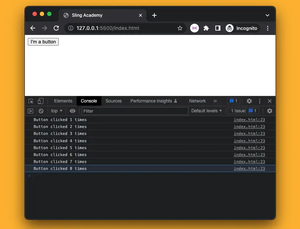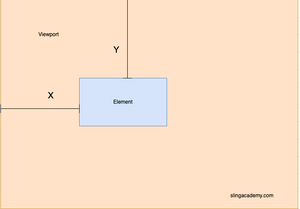This practical, succinct article walks you through three examples that use three different approaches to find the sum of all elements of a given array in Javascript (suppose this array only contains numbers). Without any further ado, let’s get started.
Using Array.reduce() method
If you’re using modern Javascript (ES6 and beyond), this might be the neatest and quickest solution.
Example:
// define a reusable function
const calculateSum = (arr) => {
return arr.reduce((total, current) => {
return total + current;
}, 0);
}
// try it
console.log(calculateSum([1, 2, 3, 4, 5]));Output:
15The reduce() method executes a reducer function for elements of an array. It returns the accumulated result from the last call of the callback function. Below is the syntax:
array.reduce(function(total, current, index, arr), initialValue)Where:
- total (required): The initial value, or the previously returned value of the function
- current (required): The current element
- current (optional): The index of the current element
- arr (optional): The array that the current element belongs to
Javascript is interesting, and it also has another method quite similar to the reduce() method, named reduceRight(). You can get the sum of a numeric array with only a single line of code like this:
const sum = [1, 2, 3, 4, 5].reduceRight((acc, cur) => acc + cur, 0);
console.log(sum);Output:
15Using a classic For loop
This is an easy-to-understand approach and has been used for decades. However, the code is a bit longer.
Example:
// define a reusable function
function calculateSum(arr) {
var sum = 0;
for (var i = 0; i < arr.length; i++) {
sum += arr[i];
}
return sum;
}
// try it
console.log(calculateSum([1, 2, 3, 4]));Output:
10Using modern For/Of loop
This approach also uses a loop but is more concise than the previous one. Like the Array.reduce() method, for/of was added to ES6 (JS 2015).
Example:
const arr = [9, 8, 7, 6, 5];
let sum = 0;
for (let e of arr){
sum += e;
}
console.log(sum);Output:
35Using the map() method
The Array.map() method is new in ES6 and beyond. This one is very useful when you have to deal with an array, including finding the sum of its elements.
Example:
const arr = [1, 2, 3, 4, 5, 6, 7, 8, 9, 10, 11];
let sum = 0
arr.map(e => sum += e)
console.log(sum);Output:
66Using a While loop
Another way to sum the elements of an array for your reference (basically, it’s quite similar to other methods of using loops).
Example:
const arr = [1, 2, 3, 4, 5, 6, 7, 8, 9, 10];
let sum = 0;
let i = -1;
while (++i < arr.length) {
sum += arr[i];
}
console.log(sum);Output:
55Using a forEach loop
Just another kind of loop in Javascript. Here’s how to make use of it to calculate the total value of a given array:
const array = [1, 2, 3, 4];
let sum = 0;
array.forEach(e => {
result += e;
})
console.log(result);Output:
10Conclusion
We’ve walked through several ways to get the sum of all elements of a given array in Javascript. Although just one method is enough, knowing the existence of other methods also helps you a lot in mastering the art of programming. Good luck and happy coding!











